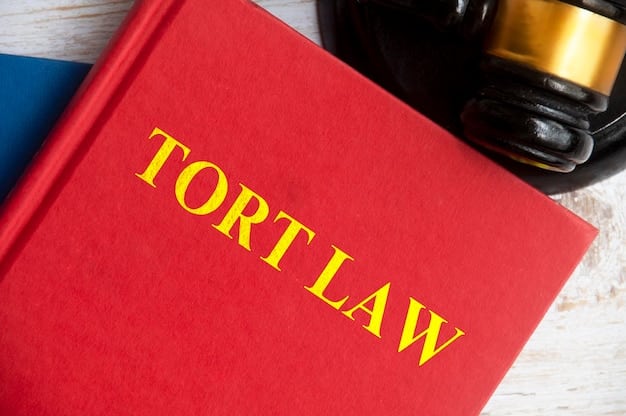Shein Copyright Lawsuit: US Impact & Consumer Details

Anúncios
Shein faces a new copyright lawsuit in the US, alleging the fast-fashion giant has repeatedly infringed on the intellectual property rights of designers, which could lead to significant changes in its business practices and potential repercussions for consumers regarding pricing and availability.
The fast-fashion industry is once again under scrutiny as Shein faces a new copyright lawsuit in the US: Details and Potential Impact on Consumers are now being dissected. This legal challenge could reshape how the company operates and impact consumer choices.
Anúncios
Shein’s Copyright Lawsuit: An Overview
Shein, the global e-commerce giant known for its incredibly low-priced and rapidly changing fashion inventory, is no stranger to controversy. However, the recent copyright lawsuit filed in the United States may represent one of the most significant challenges to its business model to date. The lawsuit alleges a pattern of intellectual property theft, accusing Shein of systematically copying designs from other companies and individual artists.
This isn’t the first time Shein has faced such accusations, but the scale and scope of the current lawsuit suggest a potentially more serious threat. Let’s delve into the details of the lawsuit, exploring the specific allegations, the potential legal ramifications, and what it could mean for consumers who have come to rely on Shein for affordable fashion.

Anúncios
The Allegations Against Shein
At the heart of the lawsuit are claims that Shein has engaged in a widespread and intentional effort to replicate the designs of other companies. These designs range from clothing and accessories to home goods and other products. The plaintiffs in the case include a variety of designers and brands, both large and small, who allege that Shein has directly copied their original works without permission or compensation.
Specific Instances of Copyright Infringement
The lawsuit details numerous instances of alleged copyright infringement, providing side-by-side comparisons of Shein products and the original designs. These comparisons highlight striking similarities in patterns, colors, and overall design, leading the plaintiffs to argue that Shein’s actions constitute clear violations of copyright law. The company is accused of not only copying existing designs but also of actively seeking out and exploiting emerging trends and creative ideas.
The Volume of Accusations
What sets this lawsuit apart is the sheer volume of accusations. Unlike isolated incidents of alleged infringement, this case paints a picture of a systemic and ongoing practice. The plaintiffs argue that Shein’s business model relies on quickly producing vast quantities of trendy items, often at the expense of respecting intellectual property rights.
- Systematic copying of designs from various sources.
- Exploitation of emerging trends and creative ideas.
- Widespread copyright infringement across multiple product categories.
The lawsuit is not just about individual cases of infringement, but rather a broader critique of Shein’s approach to design and its alleged disregard for the intellectual property of others. This approach, according to the plaintiffs, allows Shein to offer products at significantly lower prices, giving them an unfair advantage in the market.
Legal Ramifications for Shein
The legal ramifications for Shein are potentially significant, ranging from financial penalties to changes in its business practices. The outcome of the lawsuit could have a lasting impact on the company’s operations and its position in the fast-fashion industry.
Potential Financial Penalties
If found liable for copyright infringement, Shein could face substantial financial penalties. These penalties could include damages for each instance of infringement, as well as attorney fees and other costs associated with the litigation. The exact amount of the financial penalties would depend on the extent of the infringement and the specific laws that are violated.
Changes in Business Practices
Beyond financial penalties, the lawsuit could force Shein to make significant changes to its business practices. This could include implementing stricter measures to prevent copyright infringement, such as enhanced design review processes and increased monitoring of its supply chain. Shein might also be required to enter into licensing agreements with designers and brands whose work it has allegedly copied.

Impact on Supply Chain
The lawsuit could have a ripple effect throughout Shein’s supply chain. Suppliers who are found to be producing infringing products could face legal action themselves, and Shein might be forced to terminate contracts with suppliers who are not in compliance with copyright laws. This could lead to disruptions in Shein’s supply chain and potentially higher costs for its products.
- Substantial financial penalties for copyright infringement.
- Implementation of stricter measures to prevent future infringement.
- Potential disruptions in Shein’s supply chain.
The legal ramifications for Shein are multifaceted and could have far-reaching consequences for the company’s operations and its ability to compete in the fast-fashion market. The outcome of the lawsuit will likely be closely watched by other companies in the industry, as it could set a precedent for how copyright law is applied to the rapidly evolving world of online retail.
Impact on Consumers
The copyright lawsuit against Shein has the potential to impact consumers in a variety of ways, from changes in pricing and product availability to a greater awareness of ethical consumption.
Potential Price Increases
If Shein is forced to pay financial penalties or make changes to its business practices to prevent copyright infringement, it could lead to higher prices for its products. The company might need to absorb the costs of compliance, which could then be passed on to consumers in the form of price increases. This could make Shein’s products less affordable and potentially reduce its appeal to budget-conscious shoppers.
Changes in Product Availability
The lawsuit could also impact the availability of certain Shein products. If the company is forced to remove infringing products from its inventory, consumers might find that some of their favorite items are no longer available for purchase. Additionally, if Shein is required to enter into licensing agreements with designers and brands, it could lead to changes in the types of products that the company offers.
Increased Awareness of Ethical Consumption
The copyright lawsuit could raise awareness among consumers about the ethical implications of supporting fast-fashion companies like Shein. Some consumers might choose to boycott Shein in protest of its alleged copyright infringement, opting instead to support brands that are committed to ethical and sustainable practices. This could lead to a shift in consumer preferences and a greater demand for responsibly produced fashion.
The lawsuit against Shein could serve as a catalyst for change, prompting consumers to rethink their purchasing habits and consider the broader impact of their choices. While the immediate impact on consumers might be limited to price increases and changes in product availability, the long-term implications could be more profound, leading to a more ethically conscious fashion industry.
Shein’s Response to the Lawsuit
Shein has issued a statement regarding the lawsuit, expressing its commitment to respecting intellectual property rights and stating that it takes the allegations seriously. The company has said that it is investigating the claims and will take appropriate action if any wrongdoing is found. However, Shein has also defended its business practices, arguing that it has robust systems in place to prevent copyright infringement.
Internal Investigations
Shein has stated that it is conducting internal investigations to determine the validity of the claims made in the lawsuit. These investigations are likely to involve a review of its design processes, its supply chain, and its relationships with suppliers. The company might also seek legal counsel to advise it on how to best respond to the allegations.
Defense of Business Practices
In its response to the lawsuit, Shein has defended its business practices, arguing that it has systems in place to prevent copyright infringement. The company has said that it requires its suppliers to comply with all applicable laws and regulations, including copyright laws. Shein has also stated that it has a team of legal professionals who are responsible for reviewing designs and ensuring that they do not infringe on the intellectual property rights of others.
- Commitment to respecting intellectual property rights.
- Internal investigations to determine the validity of the claims.
- Defense of its business practices and existing systems.
Shein’s response to the lawsuit suggests that the company is taking the allegations seriously and is prepared to defend itself against the claims. However, the outcome of the lawsuit will ultimately depend on the evidence presented in court and the interpretation of copyright law.
The Broader Implications for the Fast-Fashion Industry
The copyright lawsuit against Shein has broader implications for the fast-fashion industry as a whole. It raises questions about the ethics of rapid production, the protection of intellectual property rights, and the responsibility of companies to ensure that their products are not infringing on the creative work of others.
Scrutiny of Business Models
The lawsuit could lead to increased scrutiny of the business models of other fast-fashion companies. These companies, like Shein, rely on quickly producing vast quantities of trendy items at low prices. This approach often involves sourcing designs and materials from a variety of suppliers, which can make it difficult to ensure that all products are in compliance with copyright laws.
The Need for Greater Due Diligence
The lawsuit highlights the need for greater due diligence on the part of fast-fashion companies. These companies should implement more robust processes for reviewing designs, monitoring their supply chains, and ensuring that their products do not infringe on the intellectual property rights of others. This could involve investing in new technologies, hiring more legal professionals, and establishing closer relationships with designers and brands.
The lawsuit against Shein is a wake-up call for the fast-fashion industry. It underscores the importance of respecting intellectual property rights and the need for companies to take responsibility for their actions. The outcome of the lawsuit could set a new standard for ethical and sustainable practices in the industry.
Alternatives to Shein for Consumers
For consumers who are concerned about the ethical implications of supporting Shein, there are a number of alternatives available. These alternatives include brands that are committed to ethical and sustainable practices, as well as secondhand and vintage clothing options.
Ethical and Sustainable Brands
There are a growing number of brands that are committed to ethical and sustainable practices. These brands prioritize fair labor standards, environmentally friendly materials, and transparent supply chains. While their products might be more expensive than those offered by Shein, many consumers are willing to pay a premium for fashion that is produced responsibly.
Secondhand and Vintage Clothing
Secondhand and vintage clothing are another great alternative to Shein. These options allow consumers to find unique and stylish pieces without supporting the fast-fashion industry. Secondhand and vintage clothing can be found at thrift stores, consignment shops, and online marketplaces.
- Support ethical and sustainable brands.
- Explore secondhand and vintage clothing options.
- Consider the long-term impact of purchasing decisions.
By exploring these alternatives, consumers can make more informed and ethical purchasing decisions. The lawsuit against Shein serves as a reminder that there are broader implications to consider when shopping for fashion, and that supporting companies that prioritize ethical and sustainable practices is a way to promote positive change in the industry.
| Key Point | Brief Description |
|---|---|
| ⚖️ Lawsuit Overview | Shein faces a new copyright lawsuit in the US. |
| 💰 Financial Ramifications | Potential financial penalties and business practice changes. |
| 🛍️ Consumer Impact | Possible price increases and changes in product availability. |
| 🌱 Ethical Alternatives | Explore ethical brands and secondhand options. |
FAQ Section
▼
Shein is accused of widespread copyright infringement, allegedly copying designs from various companies and individual artists without permission or compensation.
▼
The company could face substantial financial penalties, be forced to change its business practices, and see disruptions in its supply chain due to legal actions.
▼
Consumers might experience price increases on Shein’s products and reduced availability of certain items due to the lawsuit.
▼
Shein has stated its commitment to respecting intellectual property rights and is conducting internal investigations to determine the validity of the claims.
▼
Consumers can support ethical and sustainable brands, explore secondhand and vintage clothing options, and be mindful of their purchasing decisions overall.
Conclusion
The copyright lawsuit against Shein underscores the growing concerns surrounding intellectual property rights in the fast-fashion industry. As the legal proceedings unfold, the implications for Shein, its consumers, and the broader fashion landscape remain significant, potentially reshaping the future of affordable fashion and consumer behavior.